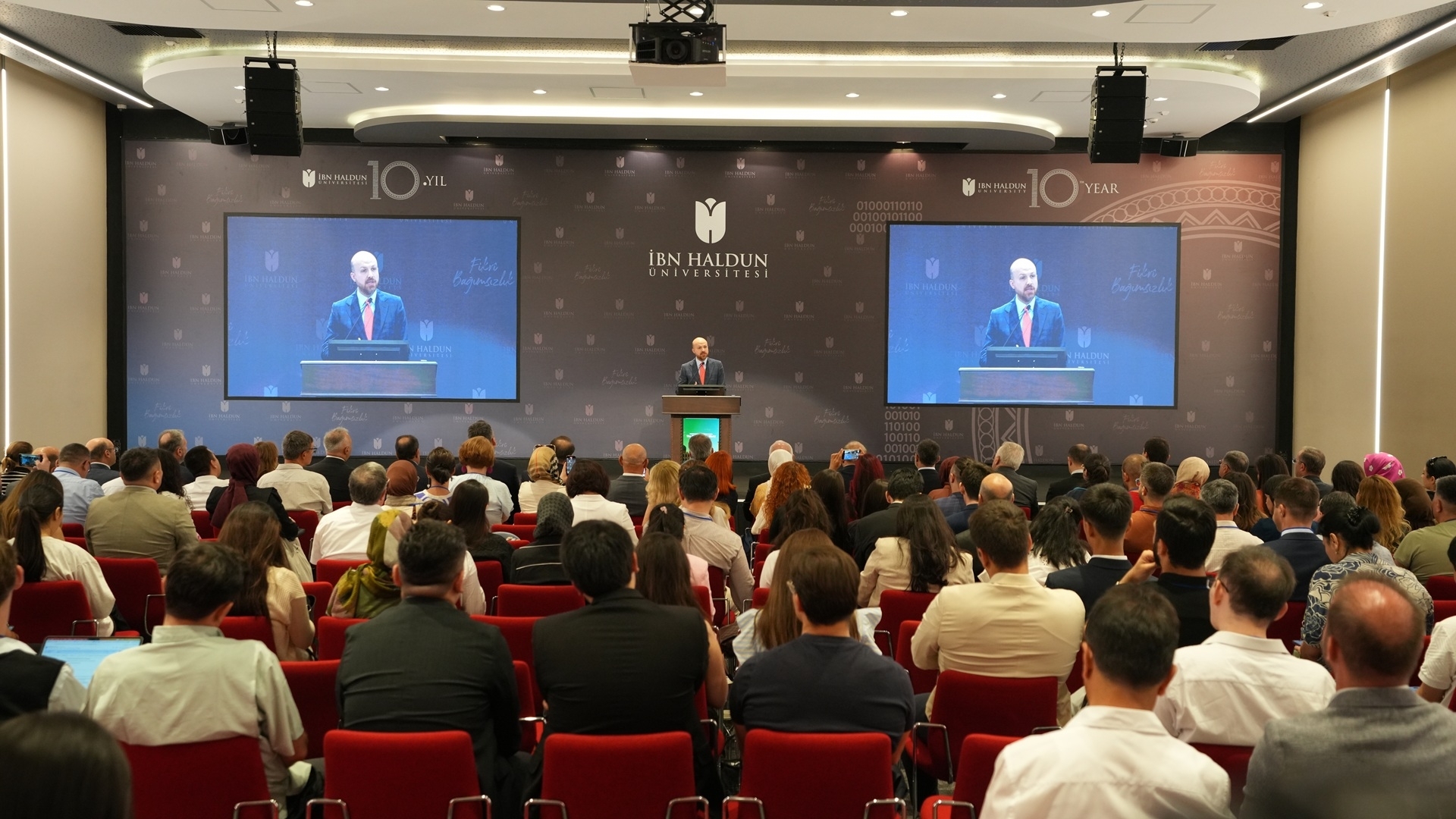


This year’s program, shaped around the theme “Rising Turkic World,” hosted 101 participants selected from 27 different countries, in addition to nearly 50 speakers and panelists. The program attracted a remarkably high level of interest, with approximately 1,000 applications received. Participants were carefully selected based on academic and professional qualifications and included graduate students, academics, representatives of non-governmental organizations, and media professionals.
At the opening session, Mr. Necmeddin Bilal Erdoğan, Vice Chairman of the Board of Trustees at Ibn Haldun University, emphasized the importance of enhancing intellectual cooperation in various fields such as education, economy, energy, transportation, and sociology within the framework of the “2040 Vision” of the Turkic World. Erdoğan underscored the necessity of building a new paradigm in the post-Western era, grounded in shared intellectual heritage, dialogue, and the removal of borders.
Prof. Dr. Atilla Arkan, Rector of Ibn Haldun University, reiterated the university’s determination to strengthen its academic ties with the Turkic World and the wider cultural sphere, highlighting the significance of regional cooperation, common identity formation, and intellectual leadership.
Furthermore, Dr. Sadi Jafarov, Deputy Secretary General of the Organization of Turkic States, also attended the opening ceremony and delivered a speech. Jafarov expressed that such programs, which bring together young intellectuals of the Turkic World, play a critical role in establishing a long-term culture of regional solidarity and cooperation. The support provided to the summer school by the OTS was evaluated as a concrete indication of institutional efforts towards integration and the development of a common vision within the Turkic World.
Throughout the five-day summer school, a total of 9 seminars, 5 panels, 1 book presentation session, and 1 workshopwere held.
The seminars addressed a wide range of topics including discovering the Turkic World from non-Western perspectives, strategy, heritage, unity and identity, diplomatic and economic relations, the role of the Turkic World in regional and global contexts, the institutional structure and functions of the Organization of Turkic States, civilization and national identity, the societal role of epics and religion, non-traditional security issues, and future-oriented opportunities.
The panels focused on current and strategic issues such as the role of artificial intelligence in the Turkic World, promotion of international investment, the strategic importance of energy and transportation corridors, perspectives on international law, and the perception of elites.
In the book presentation session, various works and reports authored by participants and speakers were introduced. In the workshop, existing and potential academic collaborations within the framework of the Union of Turkic Universities and the Orhun Process were evaluated, and concrete project proposals were developed.
The 2nd Turkic World Summer School has made significant contributions to strengthening the historical, cultural, and political ties of the Turkic World, building a shared future vision, and bringing together young intellectuals from different disciplines. In addition to the academic sessions, participants had the opportunity to share knowledge and experiences in a rich environment of social and cultural interaction.
The event was considered a concrete step towards strengthening the understanding of cooperation, solidarity, and regional integration, while also transmitting the common history and cultural heritage to younger generations across the Turkic World.
Beyond being merely an educational program, the 2nd Turkic World Summer School stood out as a multidimensional intellectual gathering, laying the groundwork for new academic and institutional collaborations shaped around a common history, culture, and future vision.
At the end of the program, participants returned to their home countries with the academic and cultural knowledge they gained, motivated to contribute to the common vision of the Turkic World and to initiate new projects.